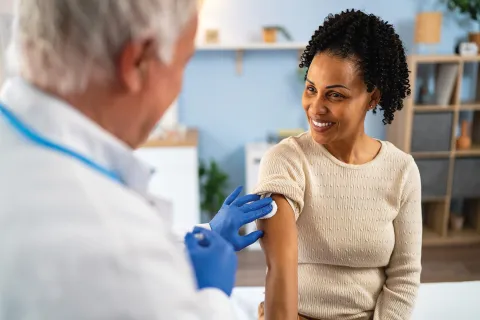Managing seasonal allergies
Dr. Anita Aderinkomi provides professional insight to answer your medication questions
Member: Allergy season is hitting me harder than usual this year. Is this normal? What can I do to feel better? — Cheryl, Shoreview
Dr. Aderinkomi: I’m glad you asked, Cheryl. It’s possible to develop seasonal allergies later in life, and their intensity can vary year to year. Weather, pollen levels and mold all affect symptom severity.
Older adults may be more sensitive to allergy medications and symptoms, especially with conditions like high blood pressure or glaucoma, or if you take other medicines. Choose treatments carefully and consult your doctor or pharmacist before starting anything new.
If you’re experiencing sneezing, congestion, runny nose or itchy eyes, here are a few ways to find relief:
Saline nasal sprays: These can help ease a runny nose and throat irritation by washing allergens out of the nasal passages.
Steroid nasal sprays: A good first option for older adults, these help reduce inflammation in the nasal passages and relieve symptoms like congestion or post-nasal drip.
Antihistamines: These block chemicals that cause allergy symptoms like sneezing and itching. They come as pills, nasal sprays or eye drops. Older adults should avoid diphenhydramine (Benadryl) due to side effects like drowsiness and dizziness. Talk with your provider about the best choice for you.
Decongestants: These should be used with caution in older adults. Nasal sprays like oxymetazoline (Afrin) can make symptoms worse if used for more than 3 days. Oral options like pseudoephedrine (Sudafed) may raise blood pressure and should only be used after talking to your doctor or pharmacist.
It also helps to limit your exposure to allergens when possible. During peak allergy season, it’s smart to keep your windows closed and consider showering after spending time outdoors to rinse off pollen.
FAST FACT
About 26% of U.S. adults experience seasonal allergies like pollen-triggered sneezing, itchy eyes and congestion.
SOURCE: MAYO CLINIC



